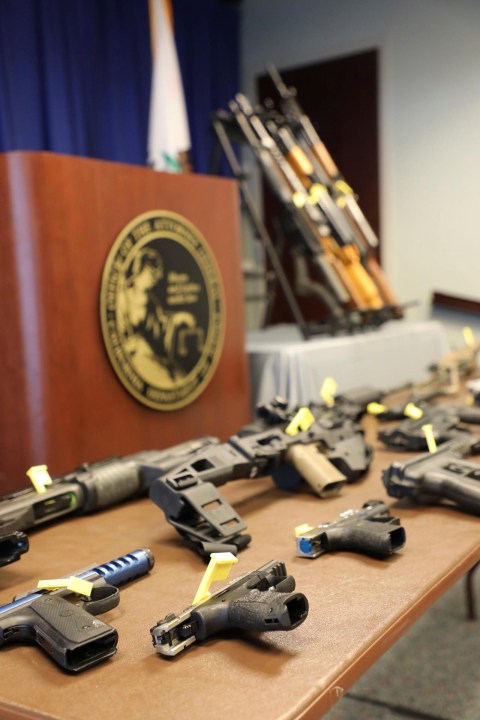
A surge in gun purchases during the COVID-19 pandemic, including those bought by people who are prohibited from having firearms, prompted state law enforcement last year to mount an aggressive push to seize nearly 1,500 weapons through a unique California program, authorities said Wednesday.
Agents investigated more than 6,600 people in 2021 through the Armed and Prohibited Persons System, known as APPS, according to a report released Wednesday. Of the 1,428 firearms seized last year, 826 were listed in the database but 602 — including 39 so-called ghost guns — were not.
The only-in-California registry cross-matches databases to find people who legally purchased weapons but are now banned from ownership because they have been convicted of felonies or a violent misdemeanor, or have a history of domestic violence or mental illness. State and local authorities then can move to seize the weapons under the program, which began in 2006.
The state Department of Justice’s efforts were hampered by the pandemic during the first half of 2021 but agents were able to return to previous productivity levels after in-person contact restrictions were lifted in June, according to California Attorney General Rob Bonta.
“They get deadly illegal firearms out of our communities,” he said.
Agents conducted four regional large-scale sweeps in the second half of 2021, Bonta said, to make up for time lost during the earlier part of the year. The sweeps resulted in 55 arrests.
The system included 24,509 people as of Jan. 1. Officials this year conducted crackdowns in the counties of Contra Costa, Santa Clara, San Francisco, San Mateo, Sonoma, and Solano in January. Last month, they targeted people in the database in Los Angeles County.






















